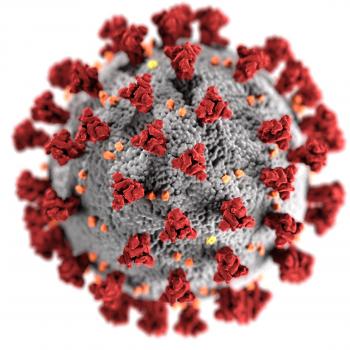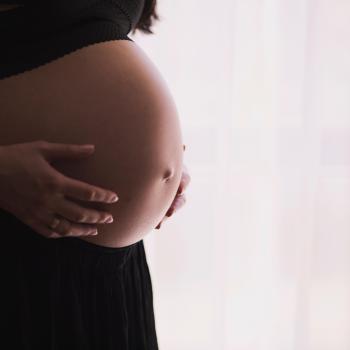
Our Pastor makes it a point to read about Christian martyrs of the past and present. Partly because Christians are to pray for the persecuted, and partly to orient his own heart toward thanksgiving.
I admit it is difficult for me to read about martyrs. I remember seeing the book Tortured for Christ on my Grandpa’s bookshelf as a young girl. On the front cover was a bony hand and wrist, with an iron chain strapped around the wrist, and I’d heard stories of prisoners enduring starvation, sharp objects being forced under fingernails, solitude for months and years on end, whippings …
All because they refused to renounce Jesus. Or because they preached the Gospel.
The human heart is deceitfully wicked, indeed. And when that wickedness is carried out, those who have found redemption through Christ sometimes suffer immensely. Some, as you know, even give their life for their faith.
No, thank you, I’d say to myself as I placed Grandpa’s book back on the shelf. Who’d want to read about that!?
Well. Back to thanksgiving. I suppose if one reads about the martyrs on a regular basis, one would have an opportunity to realize how fortunate he is with just the basics. Food, water, a toilet, and a place to bed down for the night that isn’t torturous in and of itself. Not to mention healthy fingernails and unchained limbs.
However. Because I find it so difficult to read about the trials of martyrs, I’ve kept my exposure to the details at a minimum. I was married for twelve years before I was willing to pick up Corrie ten Boom’s The Hiding Place. Shaun wanted me to read it, and he often spoke of those who gave their life for Christ with great emotion. It was only when I began to suffer at great lengths myself that I became willing to pick up Corrie’s account of unjustly being placed in a concentration camp for hiding – and thereby saving – many Jews. I needed someone to tell me why Jesus was so great if suffering was so brutal, and I figured Corrie was the appointed gal.
Granted, I was not in prison … technically. My body certainly felt, and still feels, like a prison. Suffering comes and goes in severity, but at some level, it’s always there and has been for a good portion of my life. But unlike Corrie, I can’t exactly blame another person for my suffering. I’m not suffering at the hands of a cruel and heartless dictator who rules my world. I’m not suffering because of medical malpractice. I’m not suffering because a drunk driver hit me. I’m simply suffering because we live in a fallen world, and so … if anyone is to blame for MY suffering, it is Adam and Eve and thereby ME, as I followed quite willingly in their sinful footsteps.
Where sin is, death abounds.
But where sin abounded, grace abounded much more (Rom. 5:20).
I think that is the crux of Corrie’s message. There are great evils in the world, and we are getting what we bargained for when we sinned against God. The wages of sin is death, Paul says. Sometimes, the consequences of that sin are inflicted on us by others. On the other hand, as I’ve been repeating lately … if we are guilty on one point of the Law, we are guilty on all (James 2:10).
The wages for our sin is death, but thank God that’s only half of the story:
The wages of sin is death, but the gift of God is eternal life in Christ Jesus our Lord (Rom. 6:23).
In other words, we royally screwed up when we sinned. Adam and Eve were warned. It’s not like they partook of the fruit without knowing, at least intellectually, the consequences. But their head knowledge did not get transformed into heart knowledge. The warning from God about consequential death wasn’t enough, and they ate. First Eve, because Adam was such a poor leader and allowed his wife to emotionally lead the couple into partaking of the forbidden. Then Adam, because … well, I don’t know. Because misery loves company?
Point is, suffering takes place because we live in a fallen world, and at the heart of the sin that caused the Fall is this:
An ungrateful heart.
Imagine all Adam and Eve were given by God. They had everything they needed and more in the Garden, but they went for the one thing (the one thing!) out of (I’m guessing) a million gazillion things God instructed them to avoid. He warned of the consequence of death, but perhaps not being familiar with what death looked like, exactly, they didn’t believe God would carry out the punishment, so … crrrrruuunch! Unbelieving in heart and blind to the blessings given them, they ate.
I’m reading Heart of The Trail. It’s an overview of eight wagon train women, and their journeys west in the late 1800’s. Those women suffered. They went without water and food until they nearly died. Some did die, and sometimes their own babies or best friends died. Even their stock died at times because of exhaustion and lack of basic necessities. The picture on the front of the book depicts women and girls in tattered dresses, bare feet, dirty faces, matted hair. The man in the picture looks about seventy-five, although I know he was likely only thirty-something. I’ll never forget the story about how the oxen were dying because of lack of food and water, and so the pioneers ripped open their hay-stuffed beds and fed it to them.
Without a doubt, I’d be cursing those oxen every night for the remainder of the journey.
Bleepity-bleep cows!!
I read these stories for the same reason our Pastor reads about the martyrs. Their stories spur me on to thanksgiving. I don’t have everything I want in life. Some would tell me that without good health, one does not have much, and I find myself needing to fight that bald-faced lie from the pit of Hell. I never want for water. I do want for food, but not in quantity – just variety, due to a stomach condition. I’ve never lost a child, save for a suspected miscarriage long, long ago. I’ve never went a single night in my entire life without shelter over my head, save for the times lack of shelter was self-inflicted (camping!). I’ve never found myself walking mile after mile in a day to get to my final destination, no matter how badly my feet were bleeding, for fear that I wouldn’t be “home” before the snow fell. I never had to give birth to a child out on the prairie, without a doctor, boiling water, clean sheets, sterile equipment, clean towels, or a incubator. I’ve never had to bury a child in the desert, and leave her there the next day while I, and the rest of my family, traveled onward and upward. More to the point, in spite of a body of death that imprisons me for the time being, I have been given the gift of eternal life, and the promise of a new, perfectly functioning body in the future. Through Jesus, death has been conquered.
Truth is, my life is void of many different types of suffering that has taken place in the world. I’m not a martyr. When I travel, it’s pretty cushy. When I need healthcare, I get in my car and go get it.
That’s what Americans have come to expect, though, and that’s a problem. We feel entitled to a life without suffering, and we expect the government to provide not only the necessary, but the comfortable. Even beyond the comfortable, as we also expect a free college education, and the right to spend government issued welfare on whatever we please.
I won’t hammer on that issue long. My main exhortation for the day is just this:
If you’re discontent, would you consider reading about the lives of those who have gone before you, or who are currently living amongst you on this big terrestrial ball we call Earth? If you’re reading this, you have a ridiculous amount more than most people in the world, even if you’re sitting at a library computer or borrowing a friend’s phone.
I’ve given you hints as to where you could look for stories of suffering. I hope you’ll decide to dig for some literary jewels that might help you cultivate a grateful heart, because the consequences of not giving thanks in everything can be disastrous. While we don’t want to be morbid or grossly obsessed with other people’s suffering, it is appropriate to be reminded from time to time that what we’ve been given by means of either common or particular grace is, plainly put, pretty darn good.












